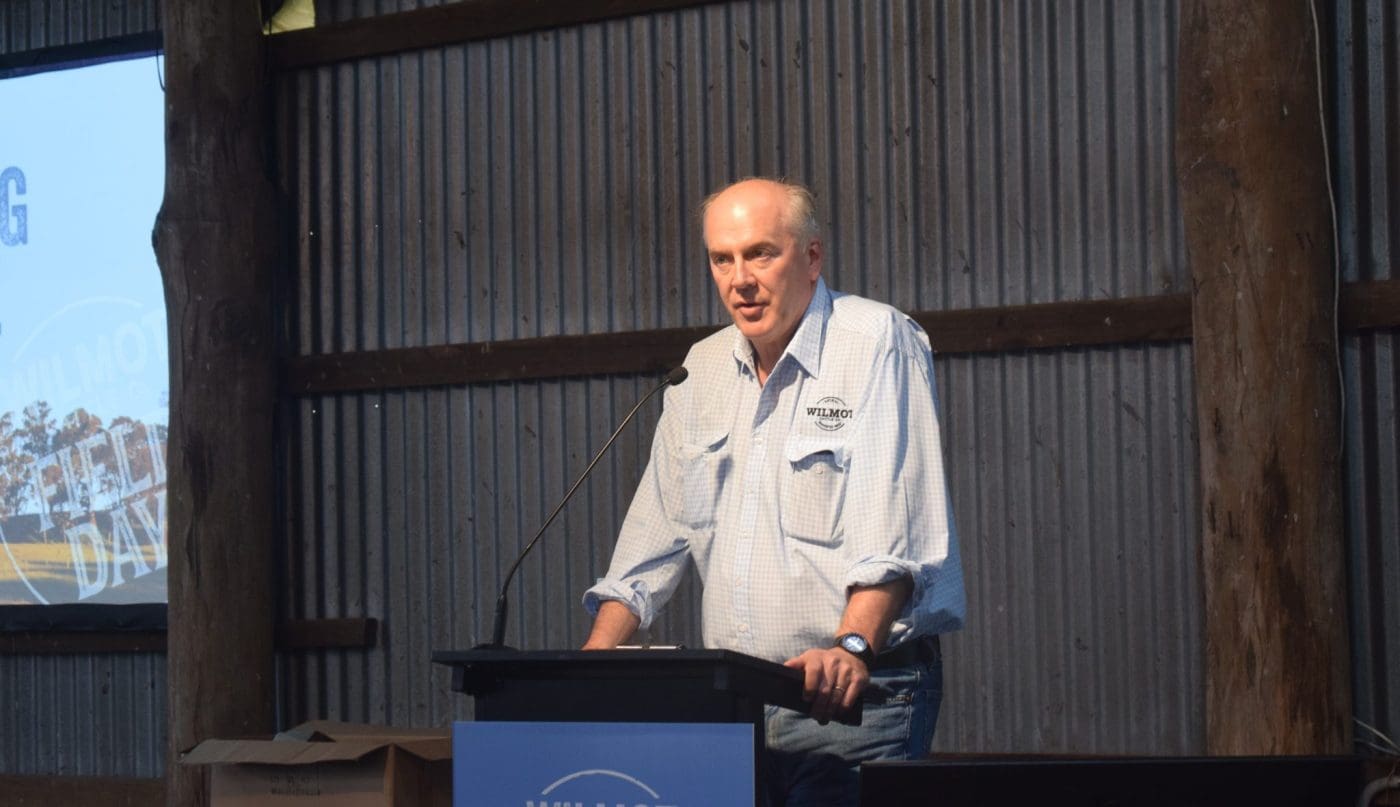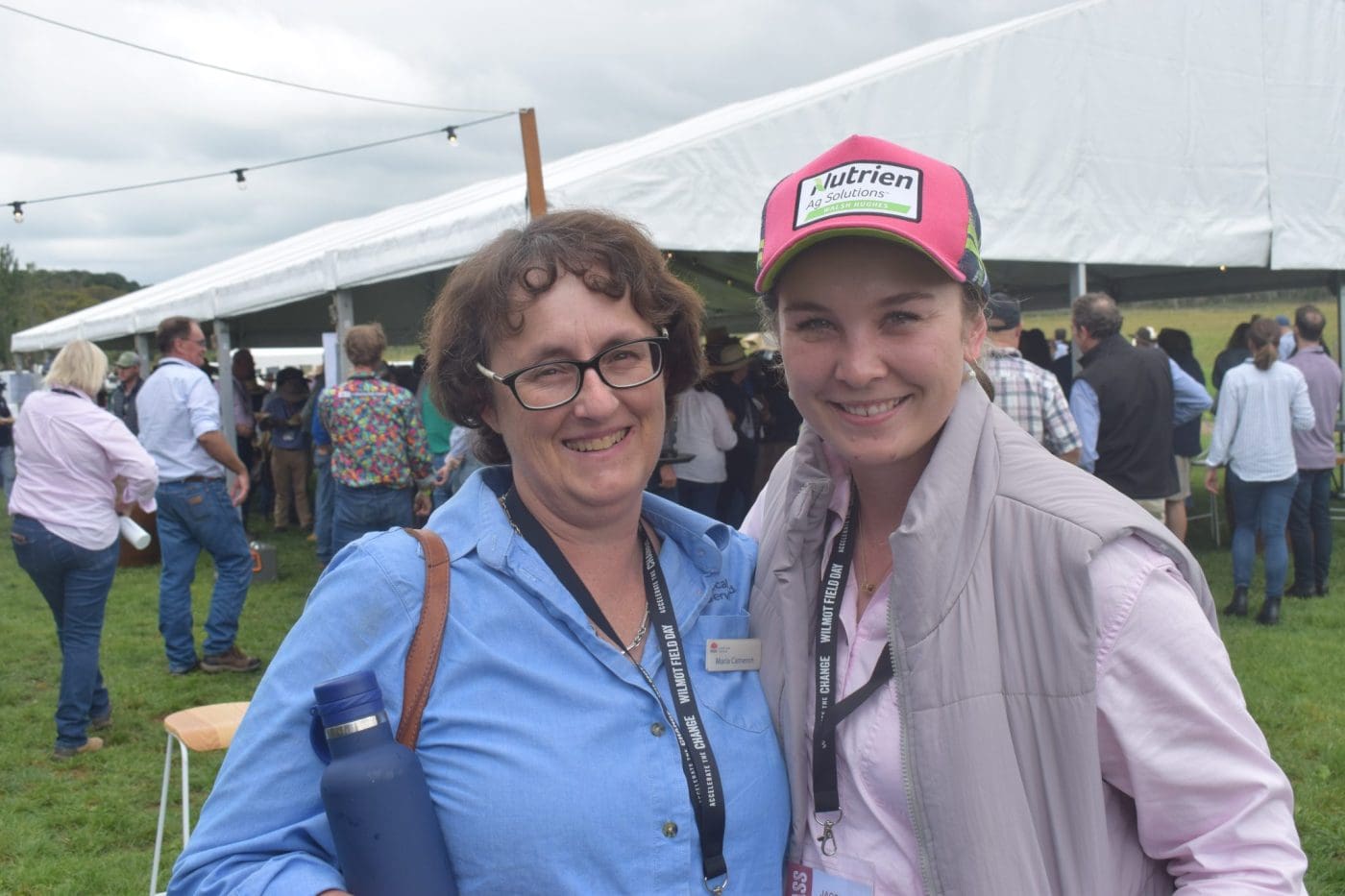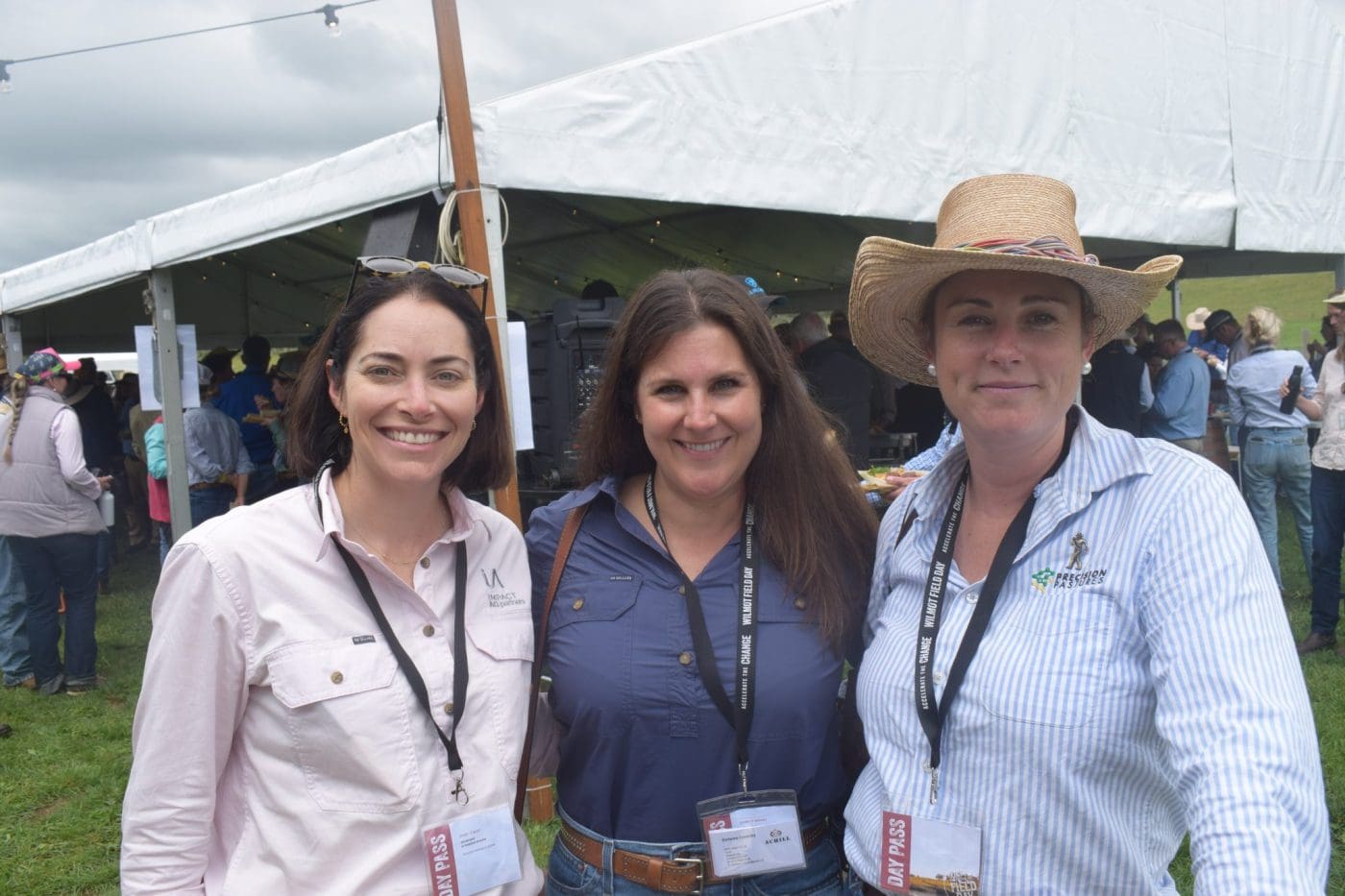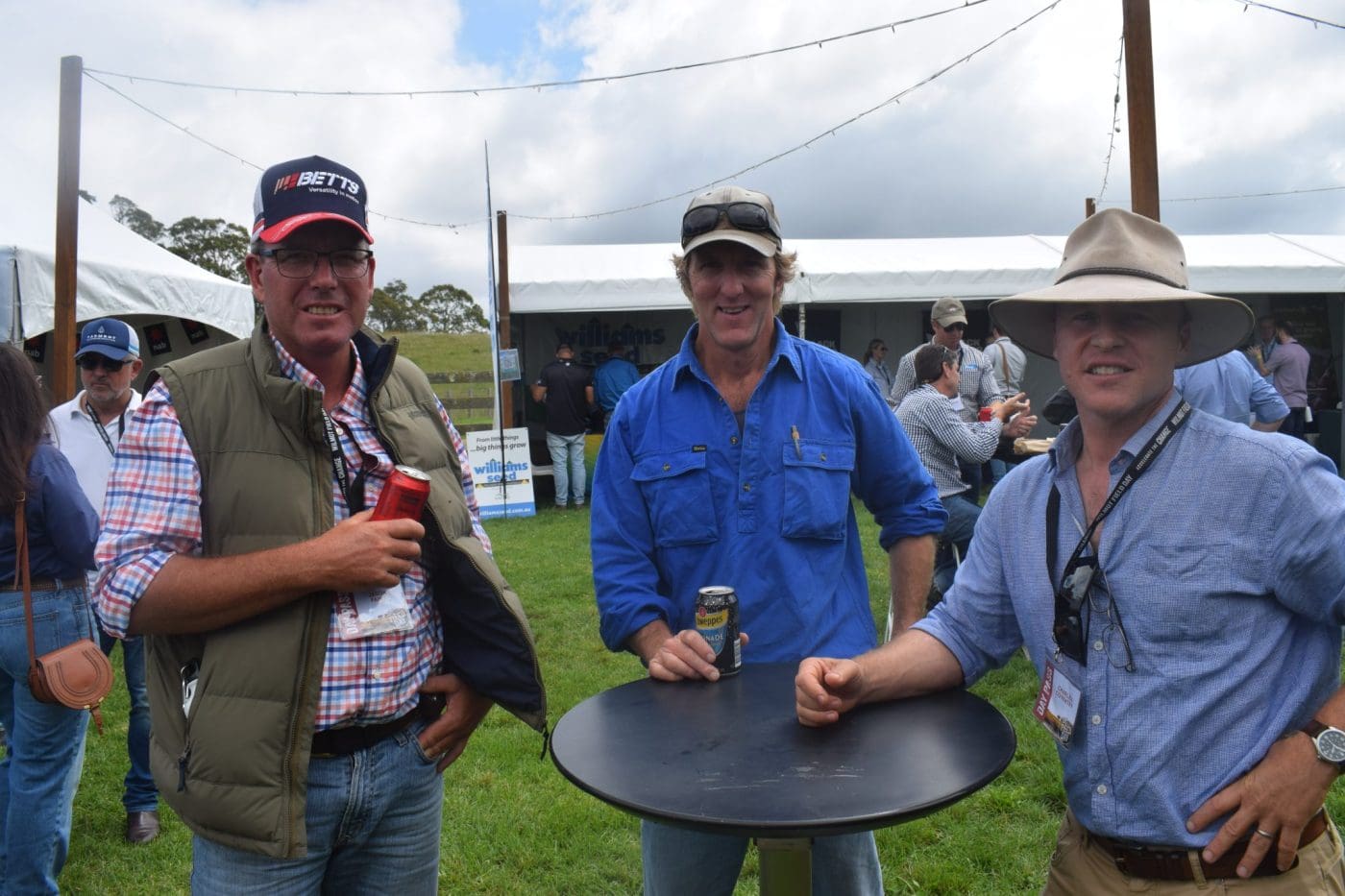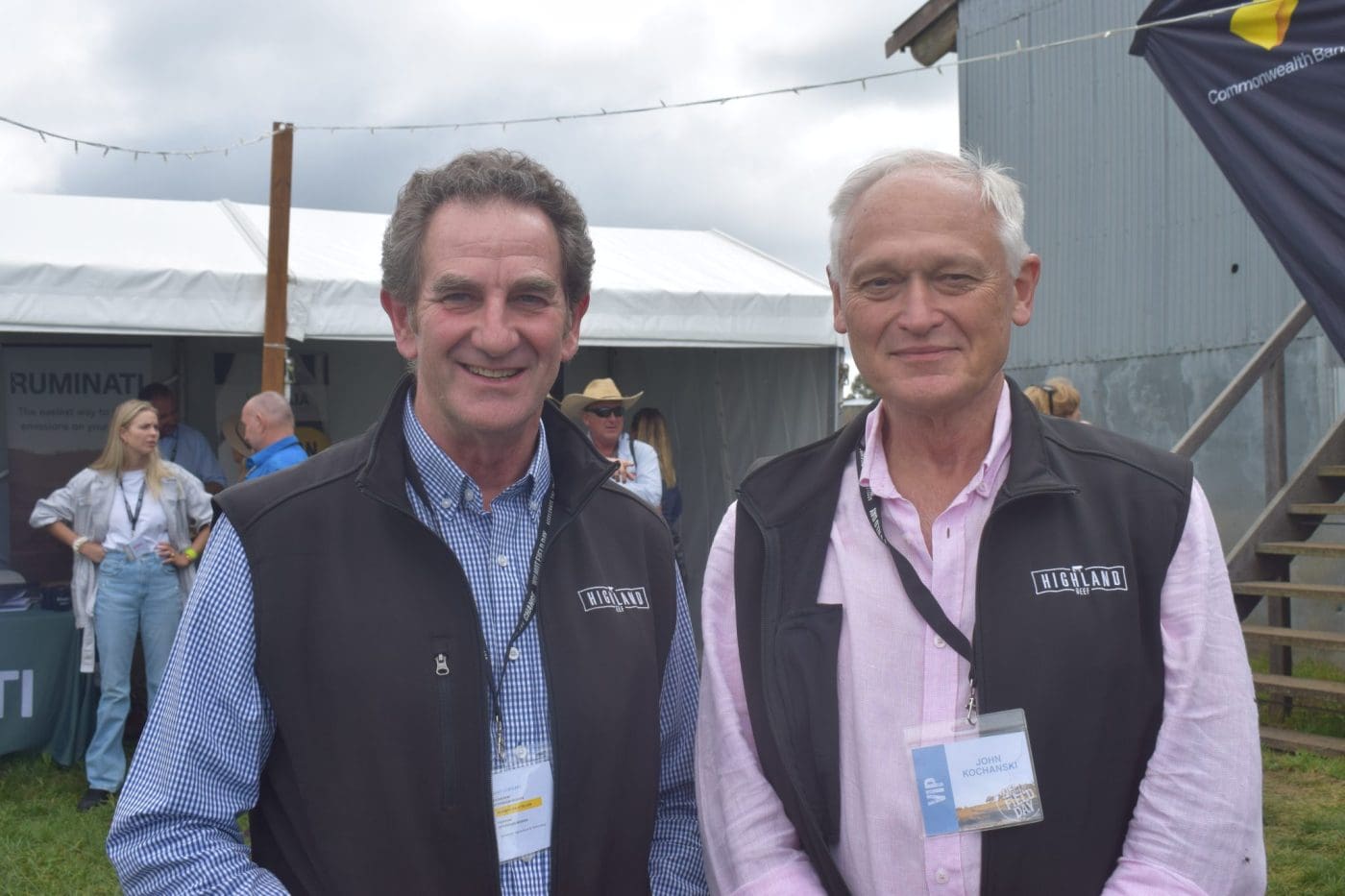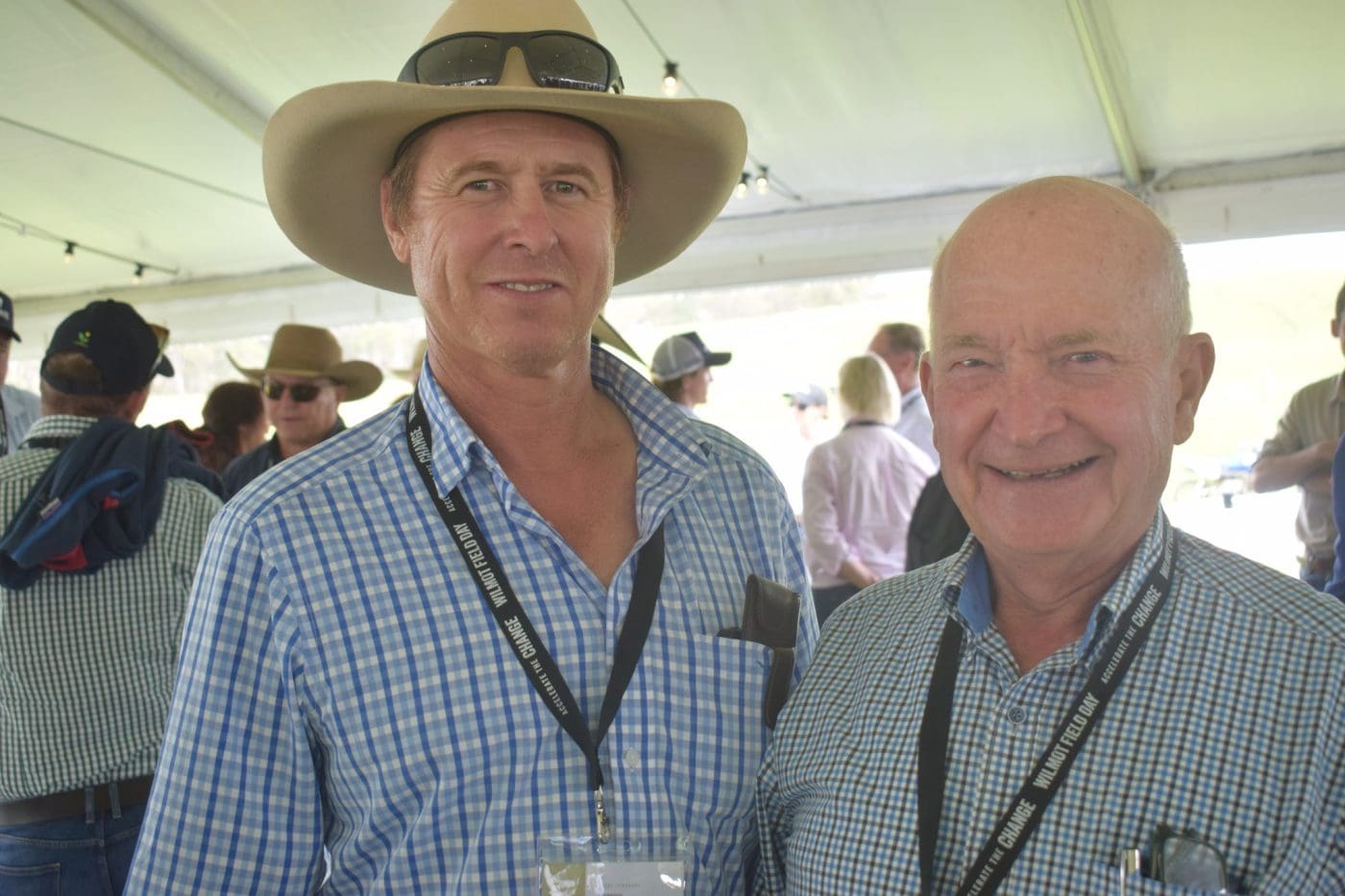AS THE Australian Government continues to pursue ambitious targets to reduce emissions, one of the countries biggest agricultural investors has called for the industry to embrace the changes ahead and look for the opportunities a low emissions economy may provide.
Producers from across the country gathered on the Northern Tablelands of New South Wales this morning for the annual Wilmot Field Days – which had its biggest crowd ever this year. The field day also had delegates from Hungary, New Zealand, the United Kingdom and Canada.
The day was opened with an address from Alasdair Macleod, who is the executive chair of MacDoch Group, which owns the Wilmot Cattle Company. Mr Macleod said a suite of Federal Government commitments to reduce agricultural emissions were going to have a profound impact on the industry.
“Now, we in the industry have a choice,” he said.
“We can feel threatened and challenged by these changes that are coming down the track. Or we can embrace change and look at how we can turn these changes into opportunities.”
While the Government has committed to including agricultural emissions in its national targets at the annual COP meeting and made agriculture the first of six sectors to come up with a “net zero plan”, Mr Macleod said it was also learning from recent protests in Europe.
“It appears that Government understand that regulation or quotas are not going to work,” he said.
“They’re looking at what’s been happening in Europe and they understand that heavy handed regulations result in their streets being blockaded by angry farmers in their tractors.
“So, let’s work with the Government on how we can achieve the best outcomes for farmers, our climate goals, and the wider economy.”
Concern methane debate could be a “long battle”
The cattle industry has also been forming climate policies, with the peak lobby group for grassfed producers, Cattle Australia, pushing for greater recognition of the short-lived nature of livestock-related methane emissions. A push followed by other industry groups in the recent net-zero plan.
“I know about the argument about biogenic livestock emissions not being the equivalent of fossil fuel-based methane emissions and I agree that they are very different, but I worry it’s going to be a long battle to persuade climate policy makers to change tack on this,” Mr Macleod said.
“The good news is that there is now a lot of work, money and resources going into solving the livestock emissions question, whether that is in the form of feed additives, rumen biome interventions, genetics or some other mechanism for making the process of turning carbohydrate into protein more efficient and minimising methane waste.”
Growing demand for carbon credits
One of the main opportunities Mr Macleod was keen to talk about was the ability of the agricultural industry to generate and sell carbon credits.
MacDoch and Wilmot have been innovators in the carbon market signing a deal to sell soil carbon credits to Microsoft in 2019 and advocating for greater recognition of the agricultural industry’s ability to sequester carbon in its soils. He said the opportunities were growing.
“There is no way Australia is going to hit its net zero commitments just by lowering emissions,” Mr Macleod told the crowd.
“There are still many sectors of the economy that haven’t worked out how to lower emissions significantly. In the absence of breakthrough technologies to decarbonise these hard to abate sectors, this is going to drive up demand for Australian Carbon Credit Units or ACCUs which the Ag sector should be able to provide. There is no better technology for lowering emissions than that which nature provides us.
“But let’s be clear, it is not the job of farmers to bail out the rest of the economy who will struggle to meet their emissions commitments. But farmers are good at taking market opportunities – and I believe this is an opportunity.”
Mr Macleod said he believed Australian agriculture could go “beyond net zero”, meeting carbon neutral specifications and selling carbon credits.
“It’s clear that in due course, there will be some sort of a premium for Ag commodities that can demonstrate carbon neutrality. It’s also clear that the supply chain doesn’t want to pay much of a premium for carbon neutrality. But here’s the problem; If I can sell carbon credits at $30/40 a tonne, I am going to have to receive a much bigger premium for my beef to forgo that opportunity.
“So, we have to work out how to do both. And I believe the capacity of most of our farms will allow us to do both, so long as we get the management levers right.”
Faces from the event

